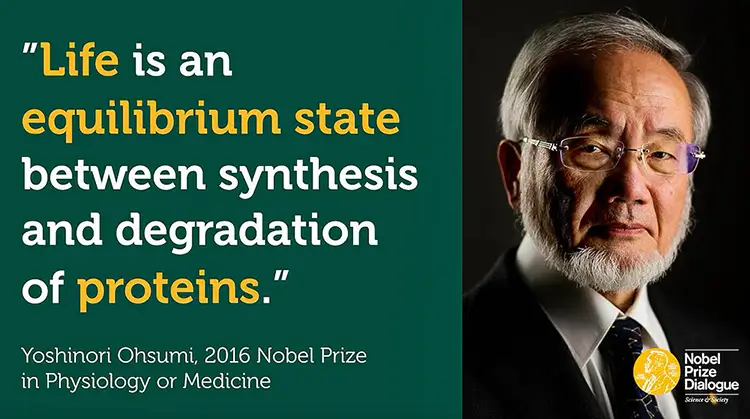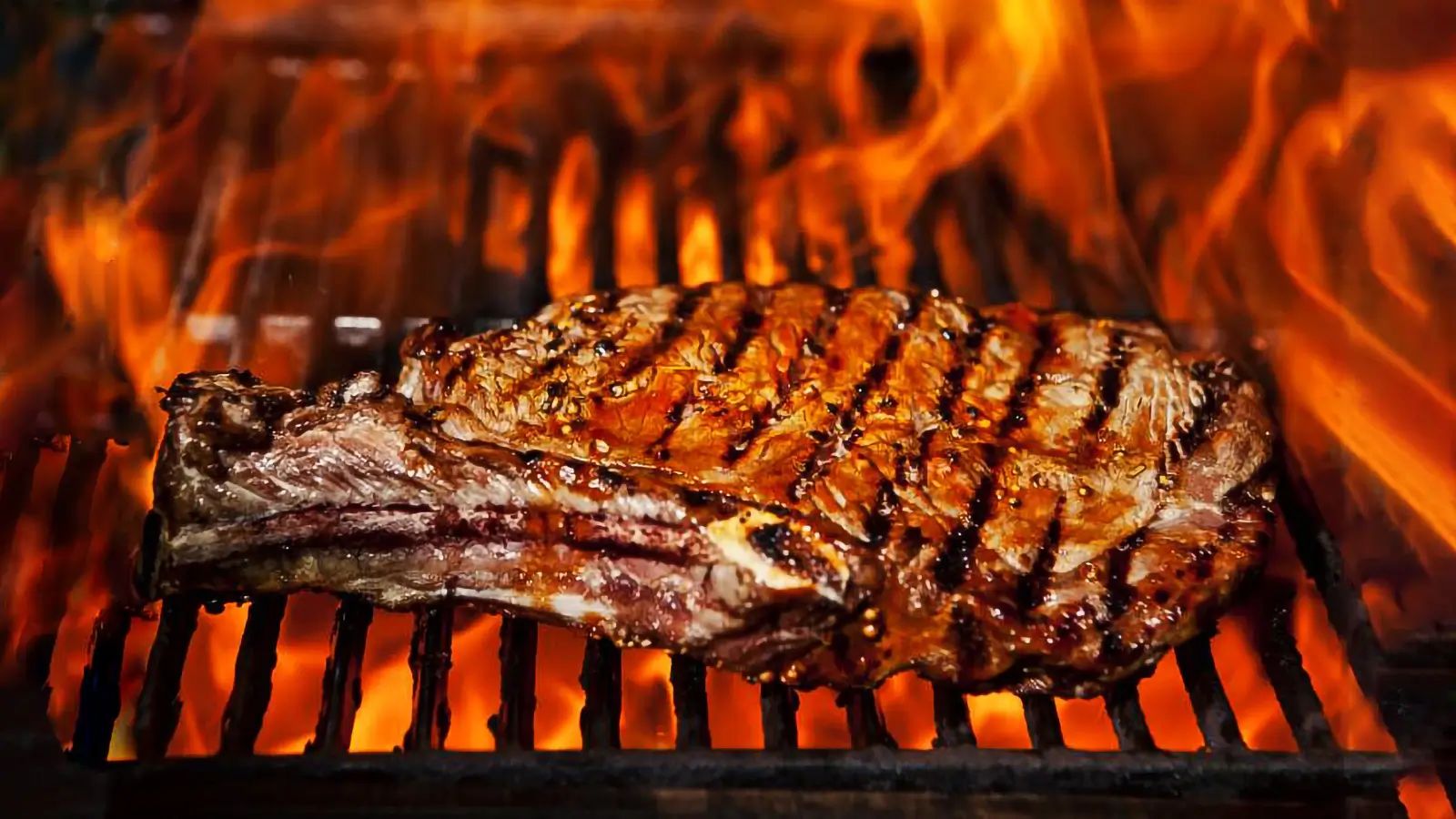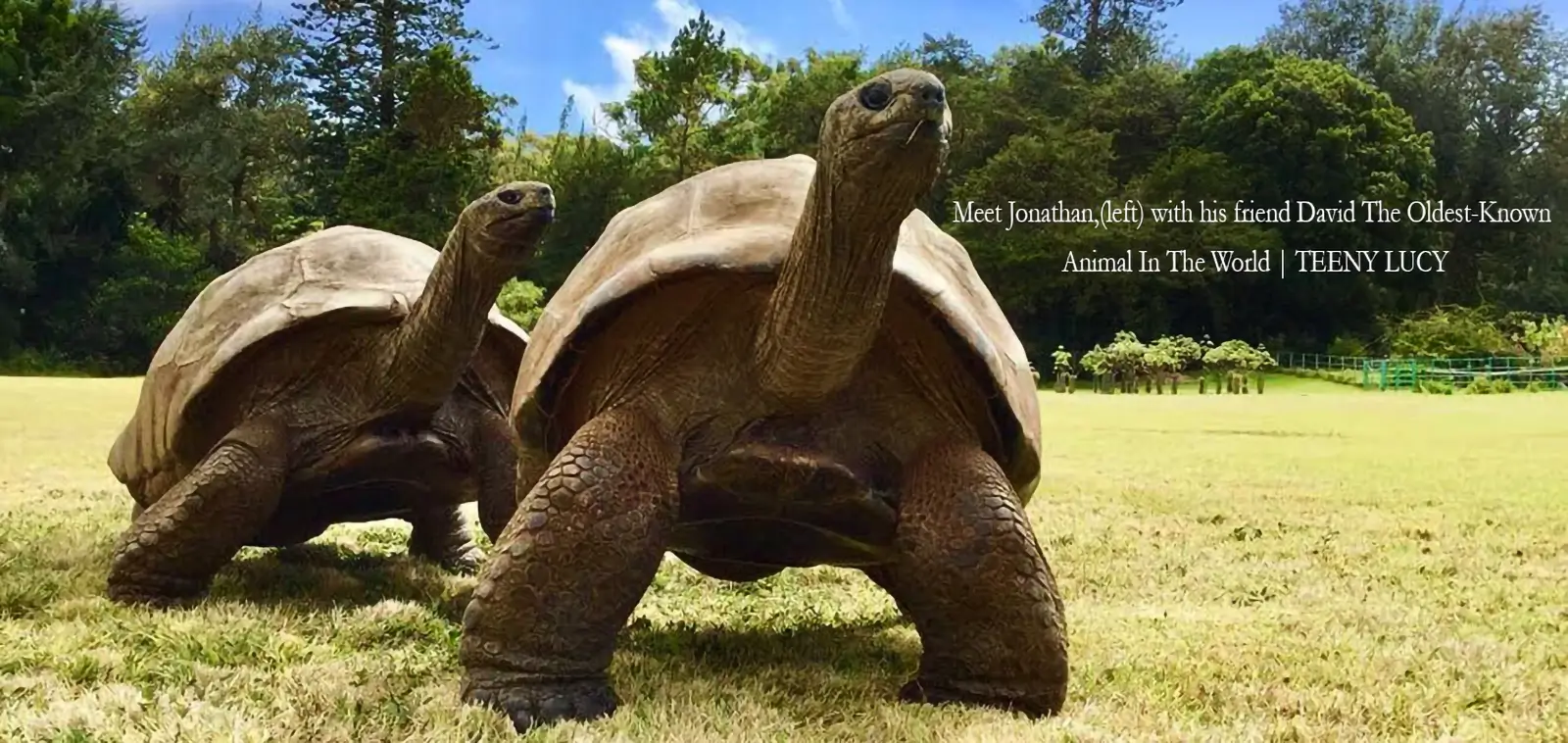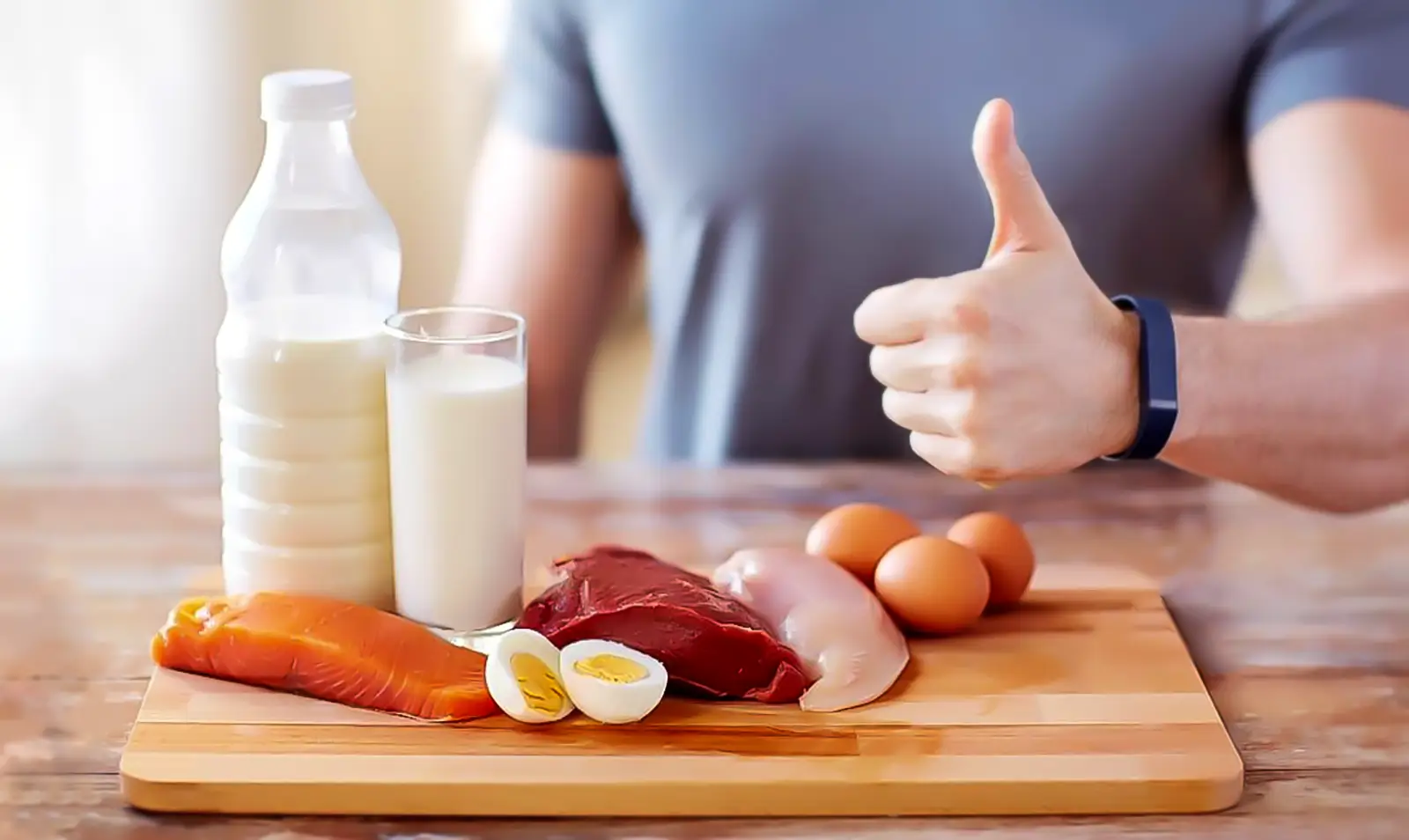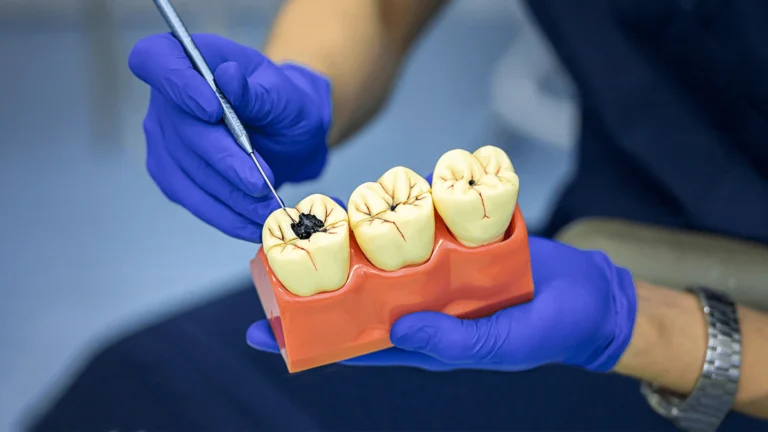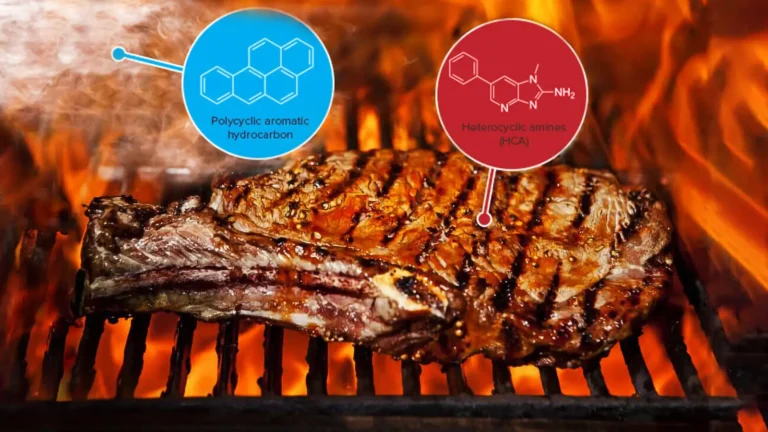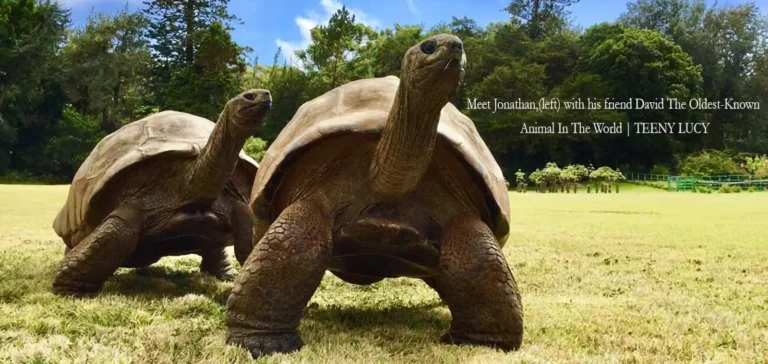Calorie restriction, Autophagy, Longevity, and Muscle loss
We all want a substantial amount of muscle mass and fast metabolism so that we can eat more but autophagy is what is in line with evolutionary biology.
Milos Pokimica
Written By: Milos Pokimica
Medically Reviewed by: Dr. Xiùying Wáng, M.D.
Updated June 9, 2023We want to have muscle mass as much as possible and a fast metabolism as much as we can so that we can eat more and don’t gain weight but evolutionary biology will again tell us what is healthy and it is not constant overeating on food. Animals in nature have a hard time finding food so a basic level of existence is an increased level of autophagy with intermittent fasting and calorie restriction. I am going to use a quote from the U.S. Department of Health & Human Services National Institute on Aging website:
“Since the 1930s, investigators have consistently found that laboratory rats and mice live up to 40 percent longer than usual and also appear to be more resistant to age-related diseases when fed a diet that has at least 30 percent fewer calories than they would normally consume. Now researchers are exploring whether and how caloric restriction will affect aging in monkeys and other nonhuman primates.”
We have a large number of human studies now (Fernández-Ruiz, 2017). The calorie restriction response exists in nearly all of the species tested to date and probably had evolved very early in the history of life on Earth as a mechanism to increase the chances of surviving periodic shortages. There is a difference between fasting and prolonged calorie restriction but the underlining mechanism is the same, and caloric restriction will prolong life expectancy much more than fasting periodically although even fasting periodically will have beneficial effects on longevity.
The benefits come from two main reasons. There are other benefits like:
- improved insulin sensitivity
- regulating inflammatory conditions in the body
- starving off cancer cell formation
- detoxifying
- improving eating patterns
- hormonal balancing.
However, there are two main reasons on a cellular level that underlines all of the other benefits that sprout out of these two.
Firstly, when we fast blood levels of insulin drop significantly, and blood levels of growth hormone may increase as much as 5-fold. Insulin and growth hormone play antagonistic roles against one another. When one is elevated, the other will be low. When we go to sleep we fast for 10 hours, insulin drops and HGH (human growth hormone) rises. When HGH rises we grow, especially if you are in puberty. HGH stimulates growth, cell reproduction, and cell regeneration. It is thus essential in human development.
Secondly, when we fast our cells initiate important cellular repair processes and change in which genes they express. We start to regenerate and allow for cleansing and detoxification of the body. One of the reasons why sick people have a low appetite is that there are in the process of intensive regeneration. In medical terms that regeneration is called autophagy.
In the ancient Greek word, “phagy” means eating and the word “auto” means self, so autophagy means literary self-eating. You self-eat yourself every day. When any cell in our body dies, it will not go to waste. What happens is recycling. Autophagy is a completely natural physiological method in the body that deals with the destruction of cells. It controls homeostasis or regular functioning by protein degradation and destruction and turnover of the destroyed cell organelles for new cell formation. During cellular stress (deprivation of nutrients) the process of autophagy is increased.
Autophagy has the ability to likewise also destroy the cells under certain conditions. There is a form of programmed cell death and there is autophagy-induced cell death. Two different types. Programmed cell death is commonly termed apoptosis. Autophagy is termed as non-apoptotic programmed cell death with different pathways and mediators from apoptosis. Also, this is the key to calorie restriction and fasting. If the cell is precancerous for example or damaged or mutated in any way autophagy cell death will help our body to clean itself.
After glycogen depletion, we will go into increased autophagy, and our body will lean heavily on amino acids and protein catabolism for energy creation. Amino acids will be used, and some of the muscle mass will be lost.
Moreover, it is a good thing.
Our organism is much smarter than we think. Our heart is the muscle too, but it would not be touched. First goes glycogen, then fat, then muscle then vital organs, and then we die from malnutrition. It is a brilliant plan to sustain life throughout hunger. If there is a “bad” cell and a “good” cell and some of the cells need to “go” for energy, first on the line is the bad cell. First on the line to get rid of are the parts of the system that might be damaged or old. The inefficient parts. The absence of autophagy is believed to be one of the main reasons for the accumulation of damaged cells, and this can lead to serious health complications. If we start severely damaged by chemotherapy or other toxins, fasting cycles can generate, literally, an entirely new immune system.
Exercise by itself is able to increase autophagy in a situation where autophagy already happens. The more intensive the exercise is, the more effective it will be. However, if we eat and work out the exercise alone would not be beneficial.
The fastest way to shut down autophagy is to eat high amounts of complete protein. What this will do is stimulate IGF-1 (Insulin-like growth factor 1) and mTOR (rapamycin), which are potent inhibitors of autophagy. IGF-1 (Insulin Growth Factor) is somewhat responsible for muscle growth. However, IGF-1 catastrophic side effect is cancer. It is best to limit protein to about 50 to 70 grams per day, depending on lean body mass. When we ingest large amounts of protein, our liver detects it, and the response is:
”Hey let’s grow stuff, we have all essential amino acids now.”
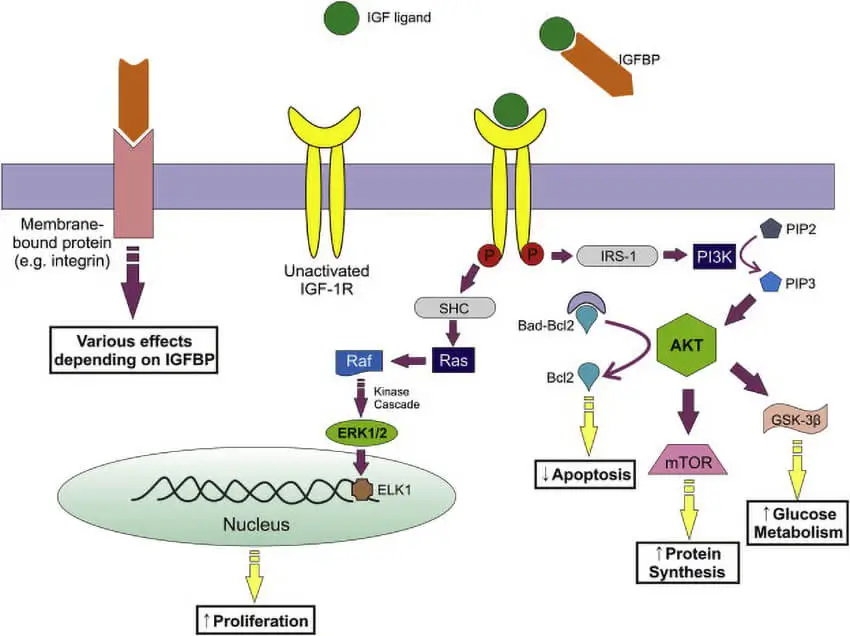
It starts pumping IGF-1. In the fasting state liver, GH (growth hormone) binding is decreased, so more of the GH is left in the bloodstream. In protein restriction, GH receptors are maintained but not for IGF-1.
To avoid loss of muscle during calorie restriction and dieting and to increase the benefit of calorie restriction the way to go is to do moderate resistance training. This will not prevent muscle loss but will be beneficial to some extent (Cava et al., 2017).
Another way is to avoid non-vegan food or in other words sources of “complete” protein in high amounts.
When we ingest an incomplete source of protein, meaning it lacks some of the essential amino acids, it will not signal the IGF-1 release at the same level. It is not just about the overall amount of protein consumed but also the source (Allen et al., 2002).
If you are vegan and you eat complete sources of protein like soy, you will negate the benefit. It is because of the protein profile. Vegans for instance that eat 7 to 18 servings of soy meals a day may end up with circulating IGF-1 levels that are relative to those who eat meat. That is because soy has complete protein. Some other plants have high-quality proteins too. The high consumption level of protein in the diet has other negative effects regardless. Also if your only goal is to prevent muscle mass loss during dieting and are not interested in longevity you will want to increase your protein intake.
The good news is that we can use autophagy to clean our genetic base, the bad news is that we do not do it anymore. In the past nature forced us by not providing enough resources. Today we eat regularly and even if we go hungry that will not last enough to deplete our glycogen stores.
References:
- Fernández-Ruiz I. (2017). Metabolism: Calorie restriction for healthy ageing. Nature reviews. Cardiology, 14(4), 190. https://doi.org/10.1038/nrcardio.2017.26
- Cava, E., Yeat, N. C., & Mittendorfer, B. (2017). Preserving Healthy Muscle during Weight Loss. Advances in Nutrition, 8(3), 511-519. https://doi.org/10.3945/an.116.014506
- Allen, N. E., Appleby, P. N., Davey, G. K., Kaaks, R., Rinaldi, S., & Key, T. J. (2002). The associations of diet with serum insulin-like growth factor I and its main binding proteins in 292 women meat-eaters, vegetarians, and vegans. Cancer epidemiology, biomarkers & prevention : a publication of the American Association for Cancer Research, cosponsored by the American Society of Preventive Oncology, 11(11), 1441–1448.[PubMed]
- Welton, S., Minty, R., O’Driscoll, T., Willms, H., Poirier, D., Madden, S., & Kelly, L. (2020). Intermittent fasting and weight loss: Systematic review. Canadian family physician Medecin de famille canadien, 66(2), 117–125.[PubMed]
- Zouhal, H., Saeidi, A., Salhi, A., Li, H., Essop, M. F., Laher, I., Rhibi, F., Amani-Shalamzari, S., & Ben Abderrahman, A. (2020). Exercise Training and Fasting: Current Insights. Open access journal of sports medicine, 11, 1–28. https://doi.org/10.2147/OAJSM.S224919
- Denduluri, S. K., Idowu, O., Wang, Z., Liao, Z., Yan, Z., Mohammed, M. K., Ye, J., Wei, Q., Wang, J., Zhao, L., & Luu, H. H. (2015). Insulin-like growth factor (IGF) signaling in tumorigenesis and the development of cancer drug resistance. Genes & diseases, 2(1), 13–25. https://doi.org/10.1016/j.gendis.2014.10.004
Related Posts
Do you have any questions about nutrition and health?
I would love to hear from you and answer them in my next post. I appreciate your input and opinion and I look forward to hearing from you soon. I also invite you to follow us on Facebook, Instagram, and Pinterest for more diet, nutrition, and health content. You can leave a comment there and connect with other health enthusiasts, share your tips and experiences, and get support and encouragement from our team and community.
I hope that this post was informative and enjoyable for you and that you are prepared to apply the insights you learned. If you found this post helpful, please share it with your friends and family who might also benefit from it. You never know who might need some guidance and support on their health journey.
– You Might Also Like –

Learn About Nutrition
Milos Pokimica is a doctor of natural medicine, clinical nutritionist, medical health and nutrition writer, and nutritional science advisor. Author of the book series Go Vegan? Review of Science, he also operates the natural health website GoVeganWay.com
Medical Disclaimer
GoVeganWay.com brings you reviews of the latest nutrition and health-related research. The information provided represents the personal opinion of the author and is not intended nor implied to be a substitute for professional medical advice, diagnosis, or treatment. The information provided is for informational purposes only and is not intended to serve as a substitute for the consultation, diagnosis, and/or medical treatment of a qualified physician or healthcare provider.NEVER DISREGARD PROFESSIONAL MEDICAL ADVICE OR DELAY SEEKING MEDICAL TREATMENT BECAUSE OF SOMETHING YOU HAVE READ ON OR ACCESSED THROUGH GoVeganWay.com
NEVER APPLY ANY LIFESTYLE CHANGES OR ANY CHANGES AT ALL AS A CONSEQUENCE OF SOMETHING YOU HAVE READ IN GoVeganWay.com BEFORE CONSULTING LICENCED MEDICAL PRACTITIONER.
In the event of a medical emergency, call a doctor or 911 immediately. GoVeganWay.com does not recommend or endorse any specific groups, organizations, tests, physicians, products, procedures, opinions, or other information that may be mentioned inside.
Editor Picks –
Milos Pokimica is a doctor of natural medicine, clinical nutritionist, medical health and nutrition writer, and nutritional science advisor. Author of the book series Go Vegan? Review of Science, he also operates the natural health website GoVeganWay.com
Latest Articles –
Plant Based News
-
Frozen Tofu Just Got A Summer Makeover In This Eggplant Gratin
on July 2, 2025
-
A Day Of High-Protein Vegan Meals – Featuring Homemade Seitan
on July 2, 2025
-
These Raw Apple Pie Bars Are Gluten-Free And Vegan
on July 2, 2025
-
Califia Farms Expands Oat Barista Range With Two New Nut-Flavored Blends
on July 2, 2025
-
Vegan Marathoner To Run Length Of UK For His 60th Birthday
on July 1, 2025
-
These Easy Plant-Based Enchiladas Are Oil-Free
on July 1, 2025
-
‘This Is Our Most Popular Vegan Salad After 20 Years In Business’
on July 1, 2025
Top Health News — ScienceDaily
- A midlife MRI that spots rapid aging and signals disease long before symptomson July 2, 2025
A new brain scan tool shows how quickly your body and mind are aging. It can spot early signs of diseases like dementia, long before symptoms begin. The scan looks at hidden clues in your brain to predict future health.
- The pandemic pet boom was real. The happiness boost wasn’ton July 2, 2025
Locked-down Hungarians who gained or lost pets saw almost no lasting shift in mood or loneliness, and new dog owners actually felt less calm and satisfied over time—hinting that the storied “pet effect” may be more myth than mental-health remedy even in extreme isolation.
- Tiny gut “sponge” bacteria found to flush out toxic PFAS “forever chemicals”on July 2, 2025
Cambridge scientists have spotted gut bacteria that greedily soak up PFAS “forever chemicals,” then ferry them safely out of the body in animal tests, removing up to three-quarters of the toxins within minutes. Their findings hint at probiotic pills that could shield people from PFAS-linked cancers, fertility issues, and heart disease while lawmakers scramble to rein in 4,700 widespread compounds.
- Researchers tested 200 toddlers — 96 chemicals were lurking in their bodieson July 2, 2025
Researchers testing urine from 2- to 4-year-olds in four U.S. states uncovered 96 different chemicals, many of them unmonitored and linked to hormone and brain disruption. Legacy toxins like triclosan are slowly declining, yet replacements such as DINCH plasticizer and modern pesticides are rising. Toddlers—especially the youngest, later-born, and those from minority groups—often carried higher levels than their own mothers. Scientists urge expanded biomonitoring and stricter regulations […]
- Ultrafast 12-minute MRI maps brain chemistry to spot disease before symptomson July 2, 2025
Illinois engineers fused ultrafast imaging with smart algorithms to peek at living brain chemistry, turning routine MRIs into metabolic microscopes. The system distinguishes healthy regions, grades tumors, and forecasts MS flare-ups long before structural MRI can. Precision-medicine neurology just moved closer to reality.
- Synthetic storm: What’s really in your teen’s vape — and why scientists are alarmedon July 1, 2025
Teen vaping is changing fast — and not in a good way. A large national study found that more adolescents are vaping THC, CBD, and especially synthetic cannabinoids, which are often unregulated and far more dangerous. Even more troubling, many teens don’t know what’s in their vape pens at all. Researchers also found that girls are now more likely than boys to vape these substances. As these mysterious and risky chemicals gain popularity, scientists are sounding the alarm about the urgent […]
- Is that really ADHD? Why flawed trials may be misleading millionson July 1, 2025
Researchers reviewing nearly 300 top-tier ADHD drug trials found that half skipped the rigorous, expert-led evaluations needed to rule out other conditions like depression or schizophrenia. With diagnoses often made by unqualified staff—or even by computer—many participants may not have actually had ADHD, casting doubt on study outcomes that shape treatment guidelines.
PubMed, #vegan-diet –
- Exploring the role of gut microbiota in rheumatoid arthritis: the effects of diet and drug supplementationon July 2, 2025
Rheumatoid Arthritis (RA) is a chronic autoimmune disease that mostly breaks out at the joints. It further causes bone erosion and decreased life quality due to severe pain. Current drugs are mainly focused on reducing pain, but unable to terminate the disease progression. This study aims to determine the effect of diet types (Western, Vegan and Mediterranean) on RA progression. Some dietary supplements and drug administration (Huayu-Qiangshen-Tongbi formula or Leflunomide plus Methotrexate) […]
- Blood biomarkers of Alzheimer’s disease in Australians habitually consuming various plant-based dietson June 30, 2025
BackgroundEvidence suggests that plant-based diets (PBDs) may be protective against neurodegenerative diseases such as Alzheimer’s disease (AD).ObjectiveThis study examined associations between blood-based AD biomarkers in individuals 30-75 years without current or diagnosed cardiovascular disease following different PBDs versus regular meat-eating diets (RMEs).MethodsThis secondary analysis of the Plant-based Diets study measured Aβ(1-42)/Aβ(1-40), p-tau181, NFL, and GFAP in 237 plasma […]
- Zinc supplementation among zinc-deficient vegetarians and vegans restores antiviral interferon-α response by upregulating interferon regulatory factor 3on June 28, 2025
CONCLUSION: We identified zinc-dependent IRF3 expression as an essential cellular mechanism behind impaired IFNα response in zinc-deficient subjects. This may contribute to disturbed antiviral immunity and cause increased susceptibility to virus infections in vivo. Oral zinc supplementation effectively restored IRF3 and IFNα levels. Hence, nutritional interventions may become increasingly important in order to prevent health implications from micronutrient deficiencies among vegetarians and…
- Micronutrient intake and nutritional status in 16-to-24-year-olds adhering to vegan, lacto-ovo-vegetarian, pescatarian or omnivorous diets in Swedenon June 26, 2025
CONCLUSION: Youth, regardless of dietary practice, need support to ensure adequate micronutrient intakes, particularly for vitamin D and selenium. Further research is required to evaluate iodine nutrition in Swedish youth.
- Integrating comparative genomics and risk classification by assessing virulence, antimicrobial resistance, and plasmid spread in microbial communities with gSpreadCompon June 26, 2025
CONCLUSIONS: The gSpreadComp workflow aims to facilitate hypothesis generation for targeted experimental validations by the identification of concerning resistant hotspots in complex microbial datasets. Our study raises attention to a more thorough study of the critical role of diet in microbial community dynamics and the spread of AMR. This research underscores the importance of integrating genomic data into public health strategies to combat AMR. The gSpreadComp workflow is available at…
Random Posts –
Featured Posts –

Latest from PubMed, #plant-based diet –
- Optimizing Aedes albopictus rearing: effects of insect- and bacteria-based larval diets on immature and adult performanceby Eleni C Savvidou on July 2, 2025
Mass production of Aedes albopictus for Sterile Insect Technique (SIT) requires cost-effective and nutritionally balanced larval diets to ensure high survival, optimal development and competitive adult fitness. This study evaluates the potential of insect-derived meals and dead autoclaved bacteria as the main protein sources in mosquito larval diets. Four isoproteinic diets were studied, each one incorporating different protein sources: Brewer’s yeast (CAA), Tenebrio molitor meal (UTH-YM),…
- Association between adherence to Mediterranean-DASH intervention for neurodegenerative delay diet and disease severity in patients with ulcerative colitisby Zeinab Nikniaz on July 2, 2025
Considering the importance of induction and maintenance of remission in patients with ulcerative colitis (UC), different studies investigated the association between adherence to healthy dietary patterns and disease severity. This cross-sectional study investigated the association between Mediterranean-DASH Intervention for Neurodegenerative Delay (MIND) diet score and disease severity in patients with UC. In this study, 158 patients with UC were included. Disease severity was determined by a…
- Pace of adoption of alternatives to animal-source foods is an important factor in reaching climate goalsby Galina Hale on July 2, 2025
The global food system is a significant contributor to greenhouse gas emissions that drive climate change. Animal agriculture accounts for a large share of food-system emissions, both directly and through the production of animal feed. Global population growth and rising incomes imply a further increase in demand for animal-source foods if current trends persist. Limiting global warming to the targets set by the international community will not be possible without the rapid reduction of a…
- Exploring nudging strategies for plant-based dietary choices in hospital patients: a quasi-experimental studyby Kristin Hünninghaus on July 2, 2025
CONCLUSION: Centrally implemented nudging is a simple and effective strategy that can increase patients’ choice of plant-based menus, which in turn may promote patient health and contribute to positive environmental outcomes.
- Association between vegetarian diet and risk of frailty in Chinese older adults: a prospective studyby Yilun Huang on July 2, 2025
CONCLUSIONS: In this prospective study, vegetarian diets were observed to be associated with higher frailty risk, compared to the omnivorous diet in Chinese older adults. Future research is needed to confirm our observations.
- Whole grain and refined grain consumption and the risk of hypertension: a systematic review and meta-analysis of prospective studiesby Dagfinn Aune on July 1, 2025
A high intake of whole grains has been associated with a reduced risk of hypertension, however, studies have not been entirely consistent. Findings regarding refined grains and hypertension have also been inconsistent. We conducted a systematic review and meta-analysis of prospective cohort studies on whole grain and refined grain consumption and hypertension risk. PubMed and Embase databases were searched up to 25th of July 2024. Random effects models were used to estimate summary relative…
